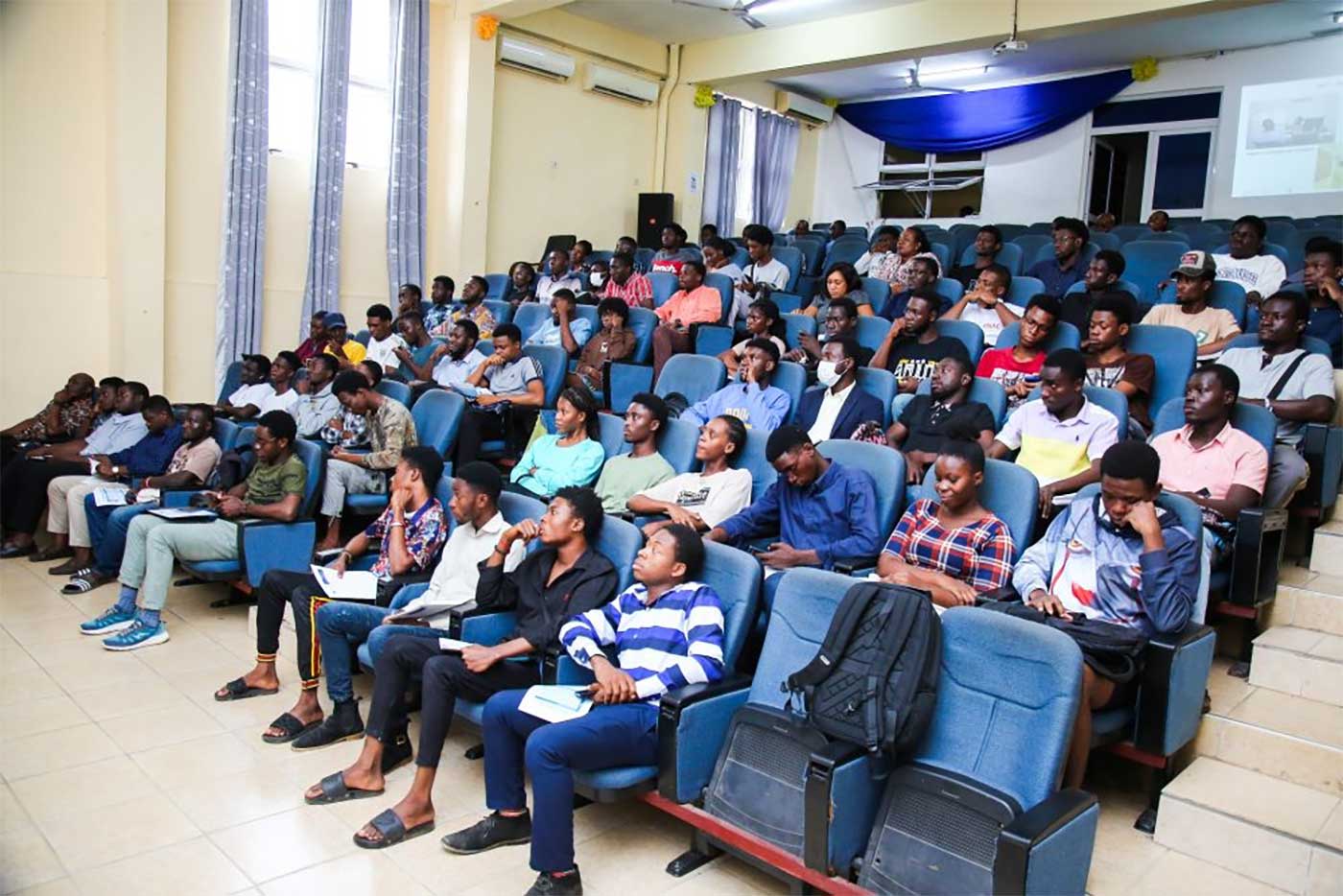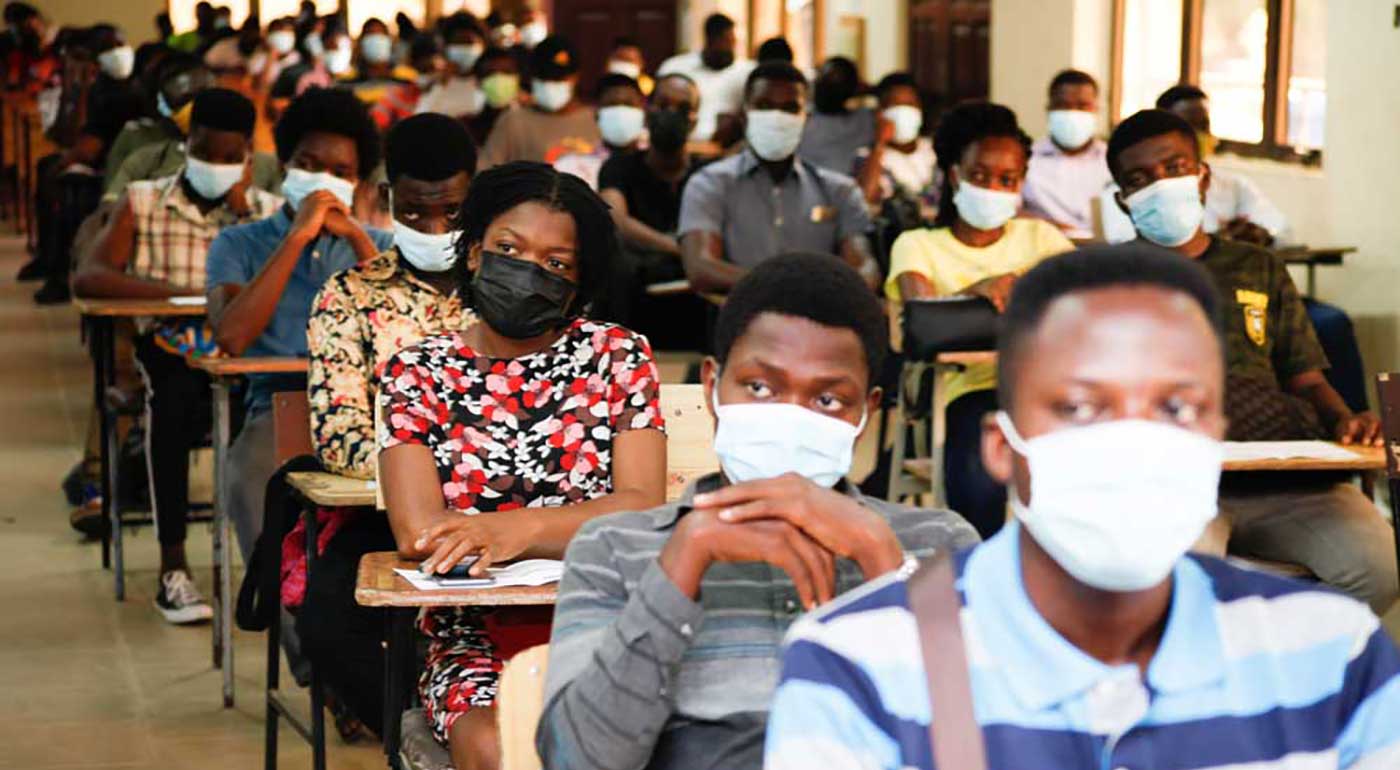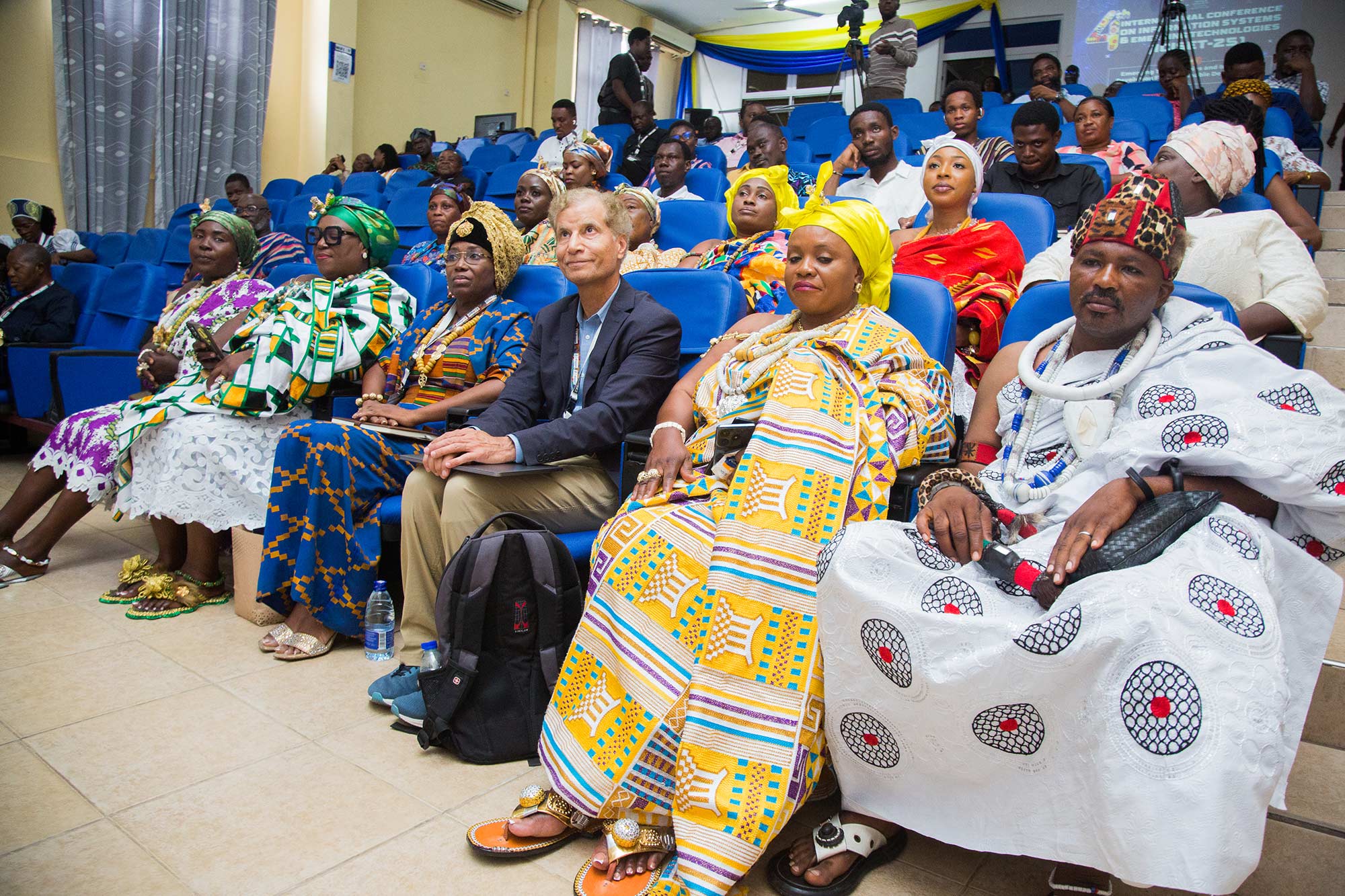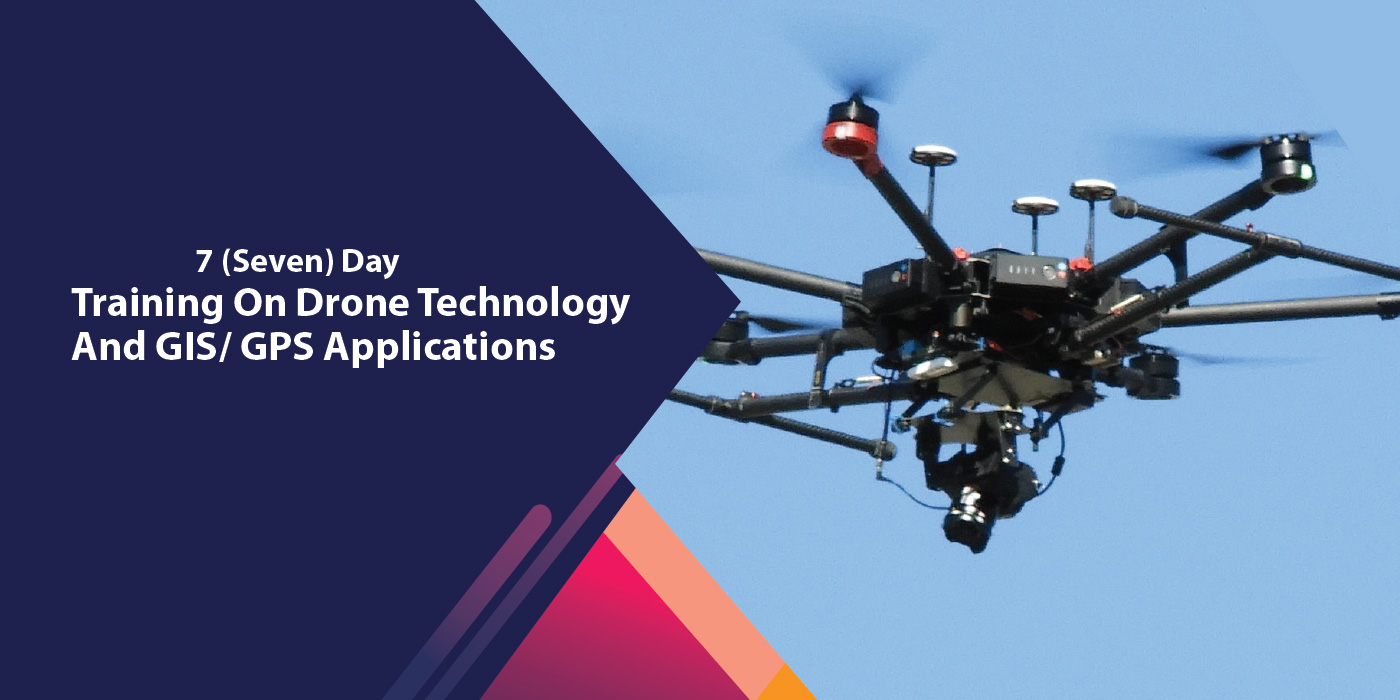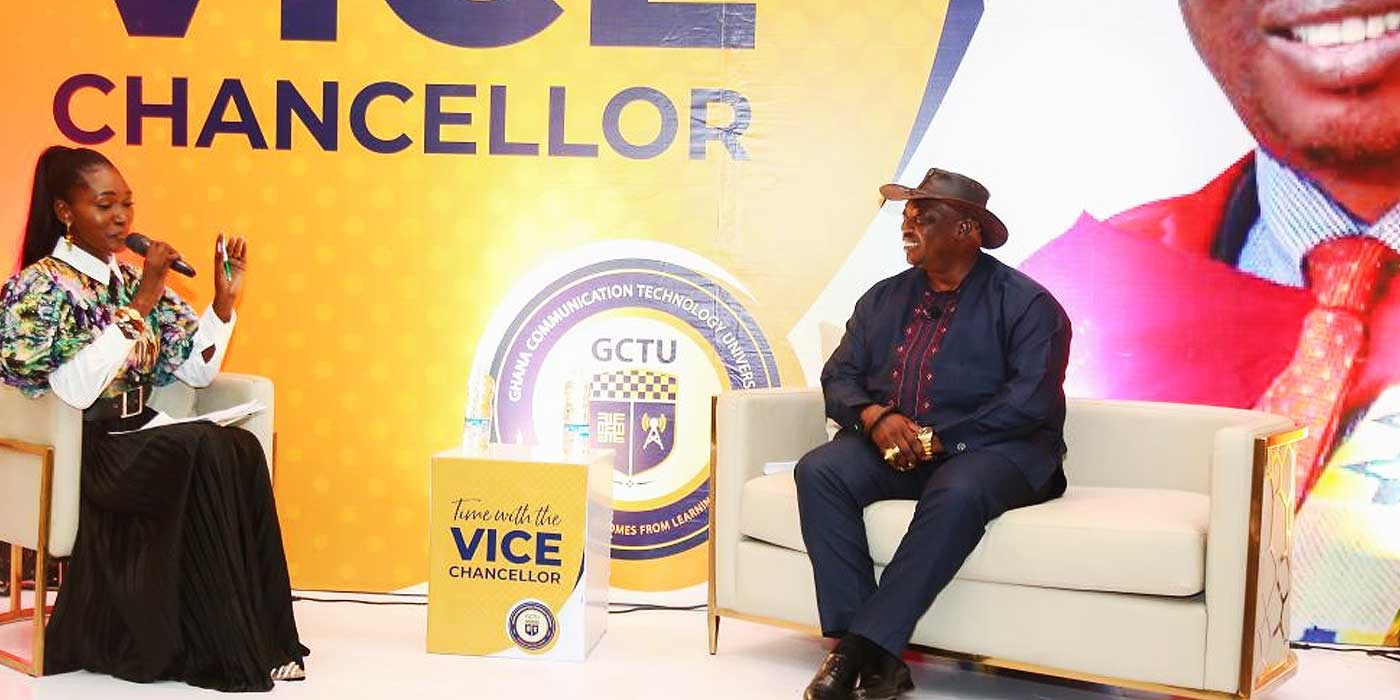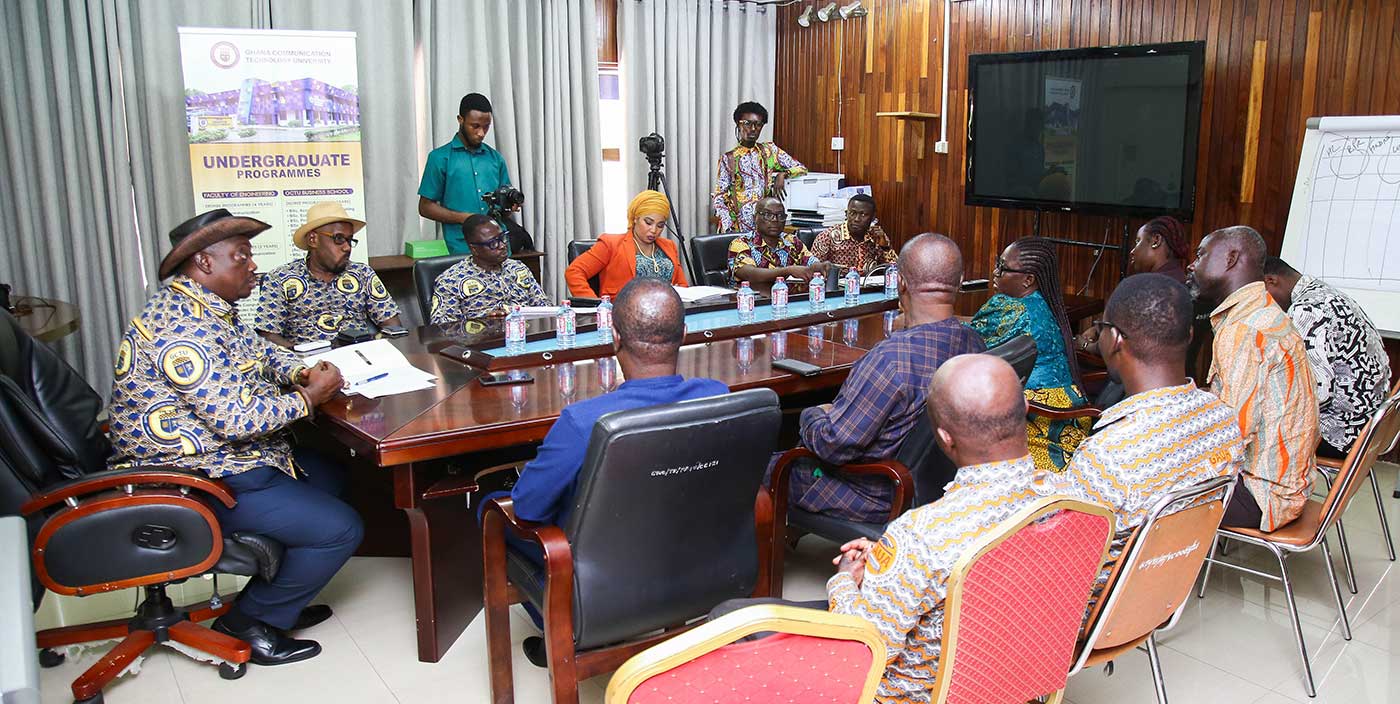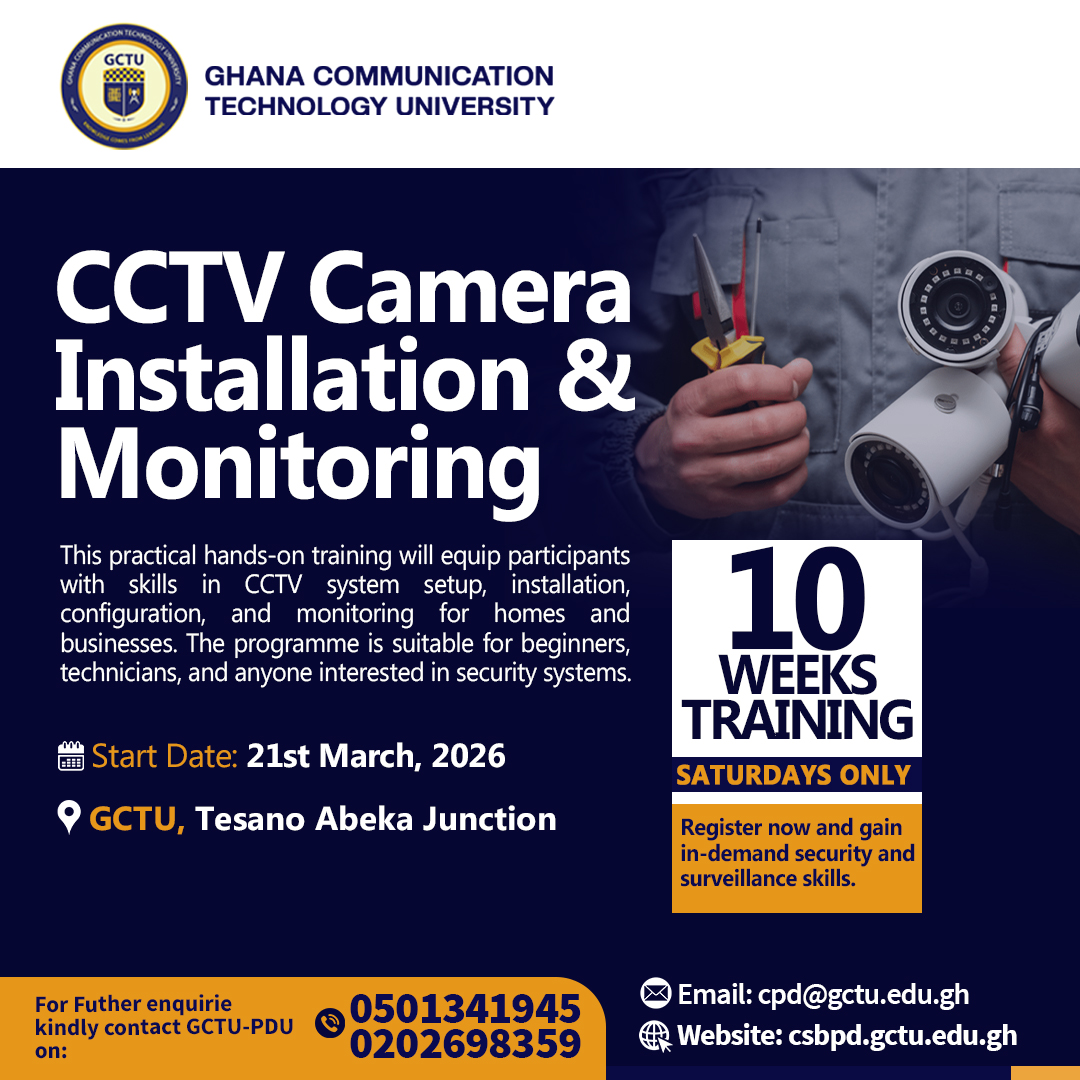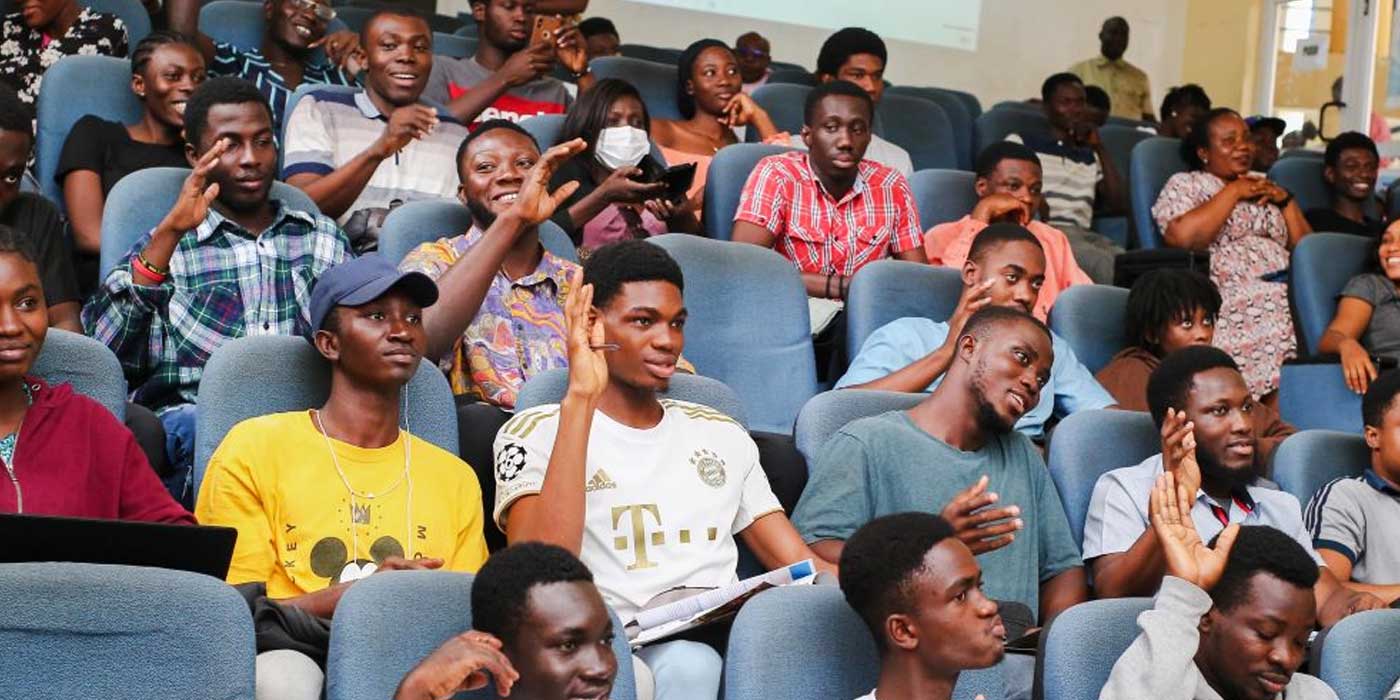
The Directorate of Research, Innovation and Consultancy, in collaboration with the Ghanaian European Centre, has hosted an information session on education, work and career opportunities on Tuesday, August 21, 2024, at the Florence Onny Auditorium.
The event was aimed at exploring the various exciting career pathways, work and a vast array of study opportunities available in Europe for students, skilled workers and professionals.
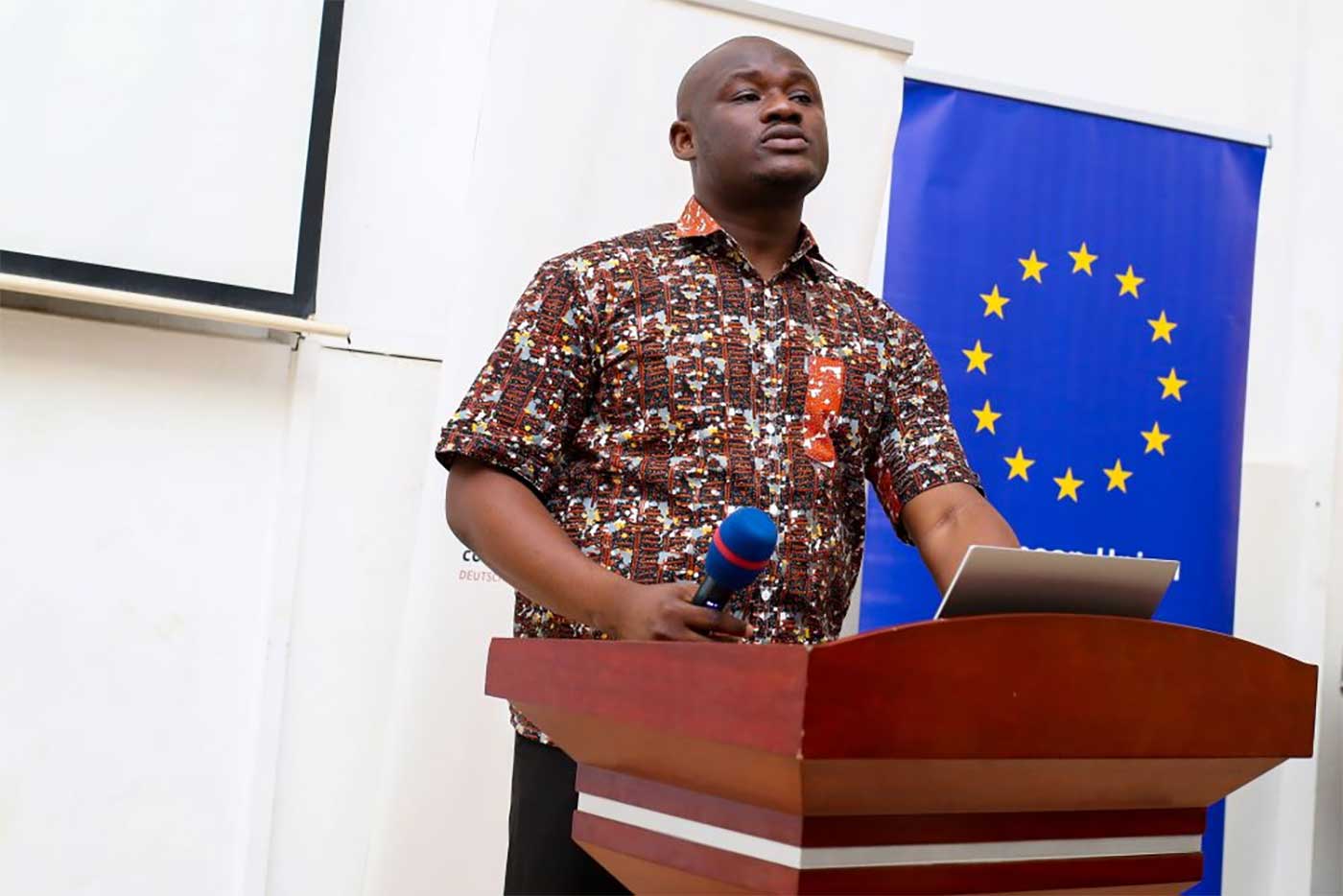
The Technical Advisor, Ghanaian European Centre (GEC), Mr. Dennis Benneh-Diawuo and a Resource Person gave a presentation on the entry requirements and processes for migrating to Europe. He emphasized that the GEC is a joint initiative funded by GIZ Ghana, the German Government, and the European Union.
He highlighted the GEC’s mission in three focus areas, namely, regular migration advice, (offer expert advice on legal migration pathways to Europe, including visa requirements, application processes, and settlement support); study opportunities (provide information on European universities, scholarship programmes and language courses to help Ghanaians pursue higher education in Europe) and work opportunities (offer guidance on job applications and provide resources for professional development and networking as guidance and support to Ghanaians seeking to explore study and work opportunities in Europe).
Mr. Benneh-Diawuo noted that directives on legal migration rules, which allow for favourable national rules and alignment include, family reunification, employment as seasonal workers, EU blue card, intra-corporate transfer, procedure for single permit and long-term residence.
He delved into the labour dynamics in Europe and highlighted the causes of labour shortages namely, Covid 19, demographic changes (aging and low birth rates), emigration and skills mismatch. “Top skills shortages occupations are ICT professionals, Medical doctors, Science, Technology, Engineering and Mathematics (STEM) professionals, Nurses, Midwives and Teachers,” he said.
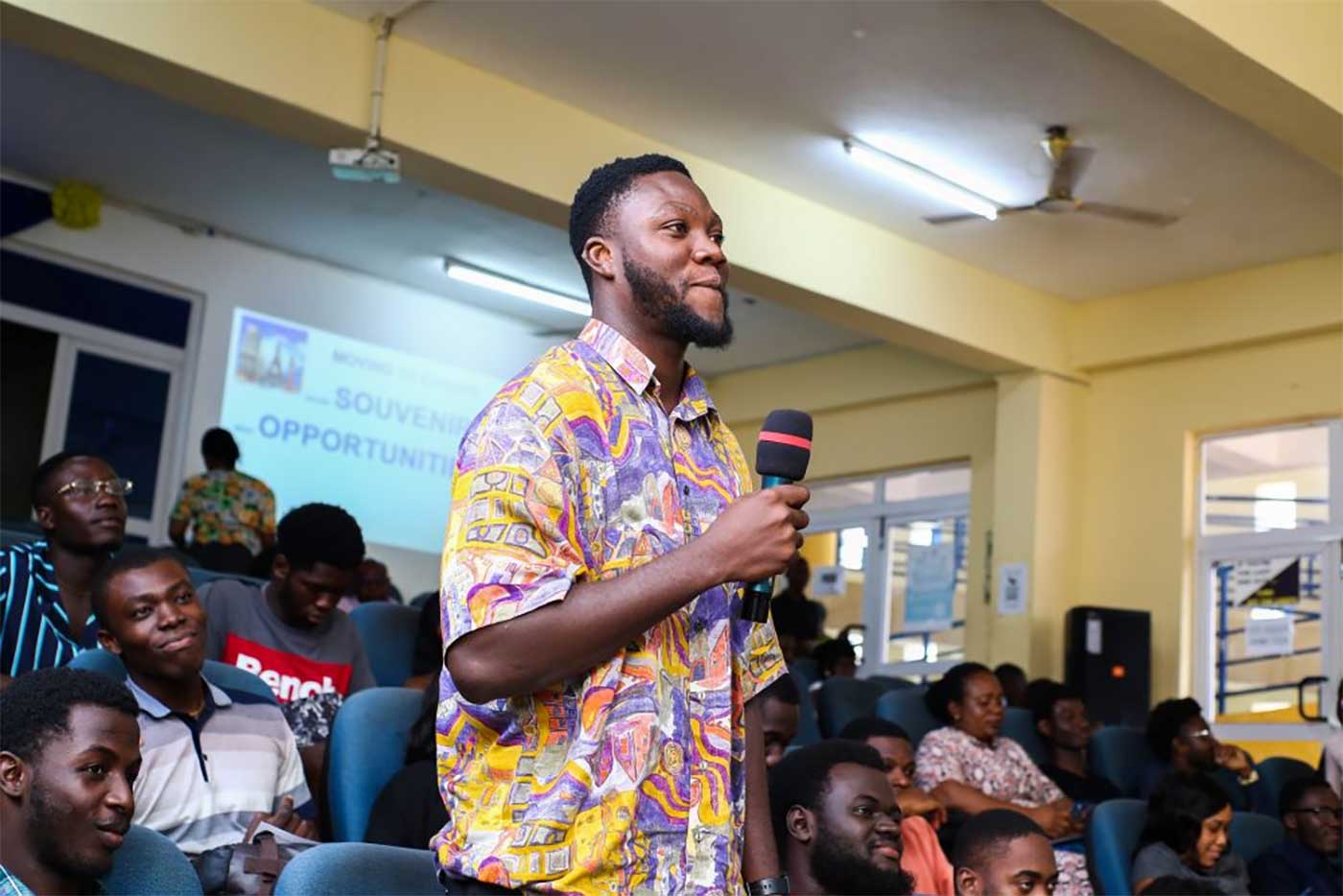
According to the presenter, digital technologies are transforming the world in which we live and work. He added that digital transformation is one of the key priorities for the EU and the digital decade initiatives sets out the EU targets that will guide digital transformation until 2030. “The EU targets at least 20 million ICT specialists should be employed in the EU by 2030 with balanced participation between men and women,” he noted. He provided insights into the “Entry points for educational migration opportunities, including:
- Considering the future you want to have (solicit answers to questions such as what profession you want and what kind of jobs you would like to do)
- Research on skills and qualifications needed to secure your dream job
- Research into the postgraduate courses that give pre-requisite qualifications to work in your chosen field
- Research into universities best noted or highly ranked into the course you intend to pursue
- Explore funding opportunities for your chosen courses and university
- Check the entry requirement for the intended course
Mr. Benneh-Diawuo also touched on the Erasmus Mundus joint Masters scholarship programme. He indicated that its duration is two years, including the period of study, research, traineeship, thesis preparation and defence. He outlined the steps to apply for the scholarship.
The Director of Research, Innovation and Consultancy, Prof. George Kofi Amoako, had earlier extended his heartfelt gratitude to participants for attending the event. He elaborated that GCTU continues to explore potential funding opportunities for students, faculty and administrative staff in exchange programmes with other international partners that align with the University’s core mandate. He indicated GCTU’s commitment to building a closer partnership with the Ghana European Centre.
